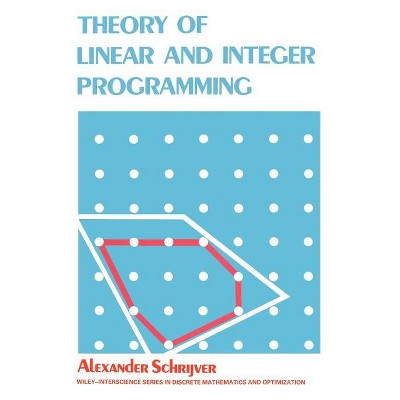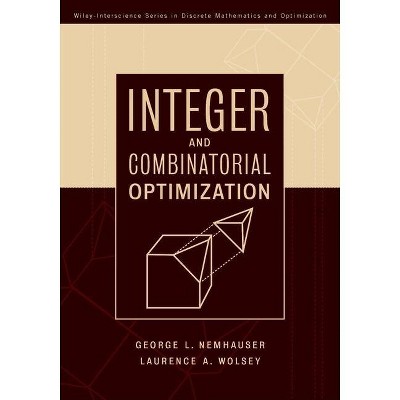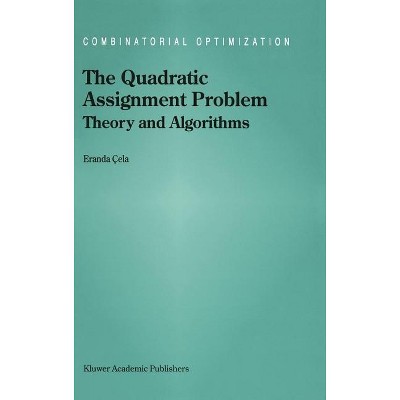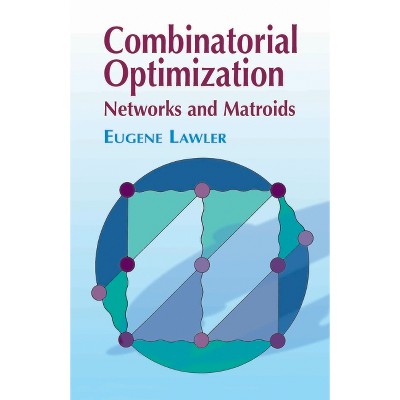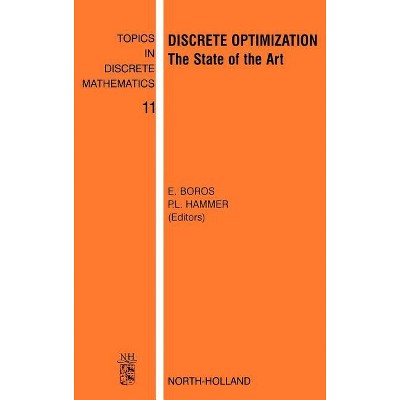Sponsored

Discrete and Fractional Programming Techniques for Location Models - (Combinatorial Optimization) by A I Barros (Hardcover)
$119.99
In Stock
Eligible for registries and wish lists
Sponsored
About this item
Highlights
- At first sight discrete and fractional programming techniques appear to be two com- pletely unrelated fields in operations research.
- Author(s): A I Barros
- 180 Pages
- Mathematics, Applied
- Series Name: Combinatorial Optimization
Description
Book Synopsis
At first sight discrete and fractional programming techniques appear to be two com- pletely unrelated fields in operations research. We will show how techniques in both fields can be applied separately and in a combined form to particular models in location analysis. Location analysis deals with the problem of deciding where to locate facilities, con- sidering the clients to be served, in such a way that a certain criterion is optimized. The term "facilities" immediately suggests factories, warehouses, schools, etc., while the term "clients" refers to depots, retail units, students, etc. Three basic classes can be identified in location analysis: continuous location, network location and dis- crete location. The differences between these fields arise from the structure of the set of possible locations for the facilities. Hence, locating facilities in the plane or in another continuous space corresponds to a continuous location model while finding optimal facility locations on the edges or vertices of a network corresponds to a net- work location model. Finally, if the possible set of locations is a finite set of points we have a discrete location model. Each of these fields has been actively studied, arousing intense discussion on the advantages and disadvantages of each of them. The usual requirement that every point in the plane or on the network must be a candidate location point, is one of the mostly used arguments "against" continuous and network location models.Dimensions (Overall): 9.21 Inches (H) x 6.14 Inches (W) x .5 Inches (D)
Weight: 1.01 Pounds
Suggested Age: 22 Years and Up
Number of Pages: 180
Genre: Mathematics
Sub-Genre: Applied
Series Title: Combinatorial Optimization
Publisher: Springer
Format: Hardcover
Author: A I Barros
Language: English
Street Date: April 30, 1998
TCIN: 1006471903
UPC: 9780792350026
Item Number (DPCI): 247-09-5413
Origin: Made in the USA or Imported
If the item details aren’t accurate or complete, we want to know about it.
Shipping details
Estimated ship dimensions: 0.5 inches length x 6.14 inches width x 9.21 inches height
Estimated ship weight: 1.01 pounds
We regret that this item cannot be shipped to PO Boxes.
This item cannot be shipped to the following locations: American Samoa (see also separate entry under AS), Guam (see also separate entry under GU), Northern Mariana Islands, Puerto Rico (see also separate entry under PR), United States Minor Outlying Islands, Virgin Islands, U.S., APO/FPO
Return details
This item can be returned to any Target store or Target.com.
This item must be returned within 90 days of the date it was purchased in store, shipped, delivered by a Shipt shopper, or made ready for pickup.
See the return policy for complete information.
Trending Non-Fiction

$19.31
was $20.98 New lower price
4 out of 5 stars with 64 ratings

$4.59
MSRP $7.99
Save $5 when you spend $20 on select books
4.8 out of 5 stars with 123 ratings

$6.20
MSRP $10.95
Save $5 when you spend $20 on select books
4.8 out of 5 stars with 33 ratings

$7.09
MSRP $9.99
Save $5 when you spend $20 on select books
4.9 out of 5 stars with 46 ratings









